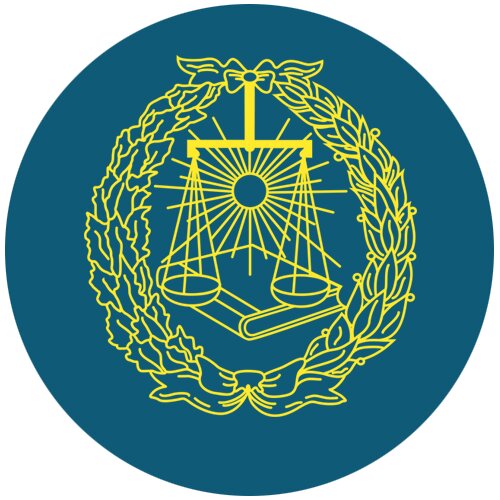Best Faith-Based Law Lawyers in Iran
Share your needs with us, get contacted by law firms.
Free. Takes 2 min.
Or refine your search by selecting a city:
List of the best lawyers in Iran
About Faith-Based Law in Iran
Faith-Based Law in Iran primarily refers to the legal framework that operates under the principles of Sharia, which is Islamic law derived from the Quran and the traditions of the Prophet Muhammad. After the Iranian Revolution in 1979, Iran adopted an Islamic Republic framework, making Islamic law the basis for legislation and legal proceedings. This legal system impacts various aspects of civic life, including personal status law, family law, criminal law, and civil contracts. Faith-Based Law in Iran is administered by a combination of religious leaders and government legal institutions, striving to adhere to Islamic principles while addressing modern legal issues.
Why You May Need a Lawyer
There are several situations where you might require legal assistance in the realm of Faith-Based Law in Iran:
- Marriage and Divorce: Navigating the complexities of marriage, divorce, and custody under Islamic law can be challenging and often necessitates legal guidance.
- Inheritance and Wills: Distribution of estates in compliance with Sharia may require expert legal interpretation to ensure fairness and adherence to religious obligations.
- Business Contracts: Ensuring that business contracts comply with Islamic principles and local regulations is crucial.
- Criminal Defense: Accusations of crimes under Sharia law require experienced legal representation to navigate potential penalties.
- Religious Minorities: Legal issues specifically affecting religious minorities might need specialized legal advice.
- International Matters: For those with international ties, understanding how Iranian faith-based law interacts with foreign legal systems is essential.
Local Laws Overview
Faith-Based Law in Iran is characterized by several key aspects:
- Family Law: Regulates marriage, divorce, child custody, and inheritance, directly rooted in Islamic teachings.
- Criminal Law: Includes traditional penalties under Sharia, such as retribution or blood money, mixed with modern punitive measures.
- Civil Law: Governs contractual obligations and property laws, adhering to Islamic ethical and moral standards.
- Religious Freedom: While Sharia predominates, there is recognition of certain rights for religious minorities to follow their own legal traditions.
- Judiciary Role: The judiciary in Iran operates under Islamic jurisprudence principles, interpreted by qualified religious scholars.
Frequently Asked Questions
1. What is the basis of Iranian Faith-Based Law?
Iranian Faith-Based Law is fundamentally grounded in Islamic Sharia, utilizing the Quran and Hadith as foundational texts.
2. Can I get a divorce under Iranian Islamic law?
Yes, divorce is permissible; however, the process can be intricate, requiring adherence to Islamic legal stipulations and potentially involving the husband's consent.
3. How does Sharia law affect inheritance?
Inheritance under Sharia law follows specific guidelines, often differing by gender and relation to the deceased, necessitating legal consultation for accurate distribution.
4. How are criminal offenses prosecuted under Islamic law in Iran?
Criminal offenses are prosecuted according to Islamic principles, with punishments ranging from traditional Sharia penalties to modern forms prescribed by Iranian law.
5. How are religious minorities' rights protected?
While Iran is governed by Sharia, religious minorities have certain legal rights to practice their faiths and abide by their religious laws in personal matters.
6. Can women initiate legal proceedings under Faith-Based Law?
Yes, women can initiate legal proceedings; however, there might be specific conditions different from those for men, necessitating legal advice.
7. How does Islamic law relate to modern business practices?
Contracts and business dealings must comply with Sharia principles, which may prohibit usurious or unethical financial practices.
8. Does Iranian law accommodate international legal frameworks?
Though Iran's legal system is Sharia-based, there are mechanisms to address international legal concerns, often requiring specialized legal expertise.
9. Are there legal resources available for foreigners in Iran?
Foreign residents might access legal services through embassies, local legal advisers, and firms familiar with international law and Sharia.
10. How are disputes resolved in Iran?
Disputes are typically resolved through the court system based on Islamic jurisprudence, with mediation or arbitration also being viable options in some cases.
Additional Resources
For further assistance, the following resources may be useful:
- Iranian Bar Association: Offers a directory of qualified lawyers specializing in Faith-Based Law.
- Local Law Libraries: Provide access to legal texts and case law under Islamic jurisprudence.
- Embassies: May offer support to foreign individuals seeking legal assistance in Iran.
- NGOs: Some organizations may offer support and guidance on legal issues involving religious minorities or international matters.
Next Steps
If you need legal assistance in the field of Faith-Based Law in Iran, consider these steps:
- Identify Your Legal Needs: Clearly define what you require help with, be it family, criminal, or civil law issues.
- Consult Legal Experts: Reach out to a lawyer specializing in Sharia law to gain insights into your specific situation.
- Gather Documentation: Organize all relevant documents and evidence that could support your legal case.
- Understand Your Rights: Familiarize yourself with your rights and responsibilities under Iranian law.
- Stay Informed: Keep abreast of any changes in the legal system or relevant statutes that might affect your case.
Lawzana helps you find the best lawyers and law firms in Iran through a curated and pre-screened list of qualified legal professionals. Our platform offers rankings and detailed profiles of attorneys and law firms, allowing you to compare based on practice areas, including Faith-Based Law, experience, and client feedback.
Each profile includes a description of the firm's areas of practice, client reviews, team members and partners, year of establishment, spoken languages, office locations, contact information, social media presence, and any published articles or resources. Most firms on our platform speak English and are experienced in both local and international legal matters.
Get a quote from top-rated law firms in Iran — quickly, securely, and without unnecessary hassle.
Disclaimer:
The information provided on this page is for general informational purposes only and does not constitute legal advice. While we strive to ensure the accuracy and relevance of the content, legal information may change over time, and interpretations of the law can vary. You should always consult with a qualified legal professional for advice specific to your situation.
We disclaim all liability for actions taken or not taken based on the content of this page. If you believe any information is incorrect or outdated, please contact us, and we will review and update it where appropriate.
Browse faith-based law law firms by city in Iran
Refine your search by selecting a city.










